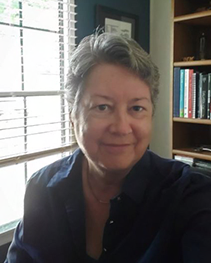Contact Us
Charles H. Houston Center
Clemson University
Division of Community, Engagement, Belonging and Access
G-27 Tillman Hall
Clemson, SC 29631
Directions
The Charles H. Houston Center is located on the ground floor in the College of Education in G-27 Tillman Hall. To view a map of Clemson University, click here.
Meet the Staff
Lamont A. Flowers

Executive Director
lflower@clemson.edu
864-656-0315
Lamont A. Flowers is the Distinguished Professor of Educational Leadership in the Department of Educational and Organizational Leadership Development in the College of Education and the Executive Director of the Charles H. Houston Center in the Division of Community, Engagement, Belonging and Access at Clemson University. The Charles H. Houston Center supports Clemson's Division of Community, Engagement, Belonging and Access by examining issues impacting institutional and educational outcomes, evaluating precollege and student engagement programs, and assisting in the division's strategic planning process.
From 2000 to 2005, Dr. Flowers was an Assistant Professor in the College of Education at the University of Florida. As a faculty member at the University of Florida, in addition to teaching students pursuing graduate degrees in higher education and student affairs, he conducted research to assess the impact of student experiences and institutional attributes on cognitive and psychosocial development. Dr. Flowers also served as a Commissioner on the Board of Commissioners representing South Carolina's 3rd Congressional District from 2016 to 2021 at the South Carolina Commission for Minority Affairs. This state agency examines issues, conducts research, and disseminates information about economic and social disparities affecting minority populations throughout South Carolina. Dr. Flowers currently serves on the National Science Foundation's Directorate for STEM Education Advisory Committee. The advisory committee analyzes data, information, and issues pertaining to NSF's Directorate for STEM Education and provides recommendations about their plans, policies, and programs. The advisory committee also suggests ideas regarding organizational goals, strategic initiatives, and STEM education outcomes throughout the United States.
Dr. Flowers has authored, co-authored, edited, or co-edited more than 100 scholarly publications exploring educational outcomes as well as leadership, diversity, and policy issues in education. His research agenda focuses on analyzing factors affecting educational and occupational attainment as well as educational leadership issues impacting institutional outcomes in higher education. Dr. Flowers' methodological interests focus on integrating technological and empirical innovations in educational research as well as using software to enhance research, assessment, and training. In this regard, Dr. Flowers' most recent journal article, published in the Communications of the ACM, titled "Testing Educational Digital Games: Diversifying Usability Studies Utilizing Rapid Application Development," highlights ideas about enhancing participation in evaluation research and the STEM workforce. In addition to producing research in journals, Dr. Flowers edited a book titled, Diversity Issues in American Colleges and Universities: Case Studies for Higher Education and Student Affairs Professionals.
Dr. Flowers has received grants to conduct research from the American Educational Research Association, Spencer Foundation, and the Association for Institutional Research. Dr. Flowers currently serves as a co-principal investigator on a research grant awarded by the National Science Foundation titled "Examining the Effects of a STEM Career Readiness Model to Enhance Underrepresented Minority Employment Opportunities" (Award #2205612). The grant project studies the impact of a career development program and examines issues about STEM students' workforce preparation experiences at HBCUs. This sponsored research project aligns with a book Dr. Flowers co-edited titled, Advancing Educational Outcomes in Science, Technology, Engineering, and Mathematics at Historically Black Colleges and Universities. The book integrates educational research regarding factors impacting engagement and retention among HBCU students pursuing STEM degrees.
Dr. Flowers has received several honors, including the National Association for Multicultural Education's Carl A. Grant Multicultural Research Award, the W.E.B. DuBois Higher Education Award from the National Alliance of Black School Educators, and the Scholars of Color Early Career Contribution Award from the American Educational Research Association. Dr. Flowers received a bachelor's degree in accounting from Virginia Commonwealth University. He also received a master's degree in social studies education and a doctoral degree in higher education from the University of Iowa. Additionally, Dr. Flowers received a master's degree in industrial statistics from the University of South Carolina. Dr. Flowers also received a master's degree in software engineering from Auburn University.
Cindy Roper

Research Associate
cgroper@clemson.edu
864-656-0607
Cindy Roper is a Research Associate at the Charles H. Houston Center. She has a BA in Psychology and Sociology, a MS in Applied Sociology, and a PhD in Policy Studies, all from Clemson University. Her research interests are varied and include program evaluation, policy research, organizational research, and research addressing equity and social justice issues.
Dr. Roper has more than 20 years’ experience in program evaluation. She has conducted evaluations for the National Science Foundation, the U.S. Department of Housing and Urban Development, the U.S. Department of Education, and the U.S. Department of Agriculture. She has also evaluated programs for Clemson University, the South Carolina Department of Juvenile Justice, and school districts in the state. In addition to evaluation, Dr. Roper has worked in areas such as school leadership, issues related to Title IX in the university environment, expanding the educational pipeline for underrepresented students, community development, and water resource policy.
Dr. Roper has authored or co-authored papers on subjects such as school leadership, water resource management, assessment, and behavioral change. She has also participated in grant writing in areas including improving educational outcomes, workforce diversity, community development, charter school development, and student engagement. She has also written policy reports and research briefs focusing on disparities in education as well as presenting papers at education and evaluation conferences.
In keeping with her varied interests, Dr. Roper has lectured on evaluation practice, disparities in educational opportunity, assessment in higher education, survey development, statistics, and other topics. She has also taught introductory sociology, medical sociology, and evaluation research.
